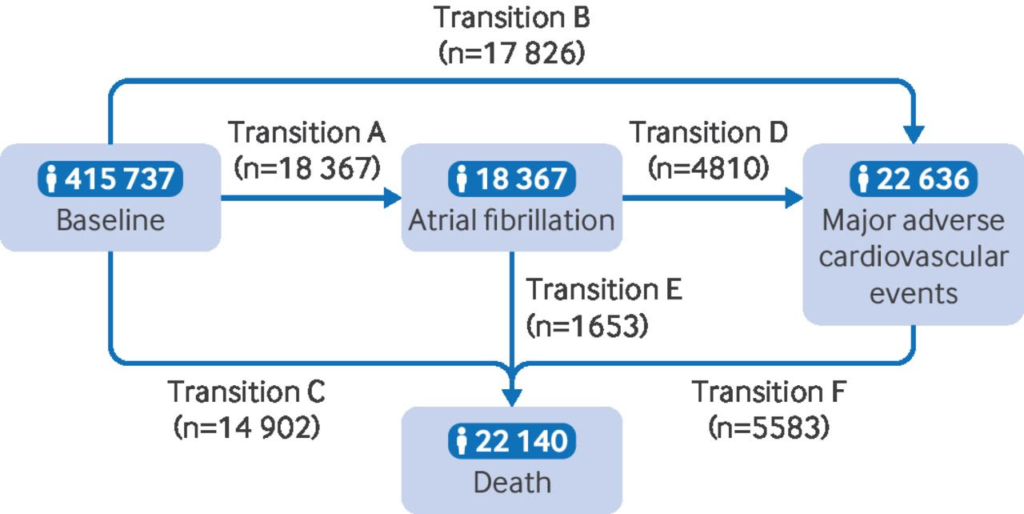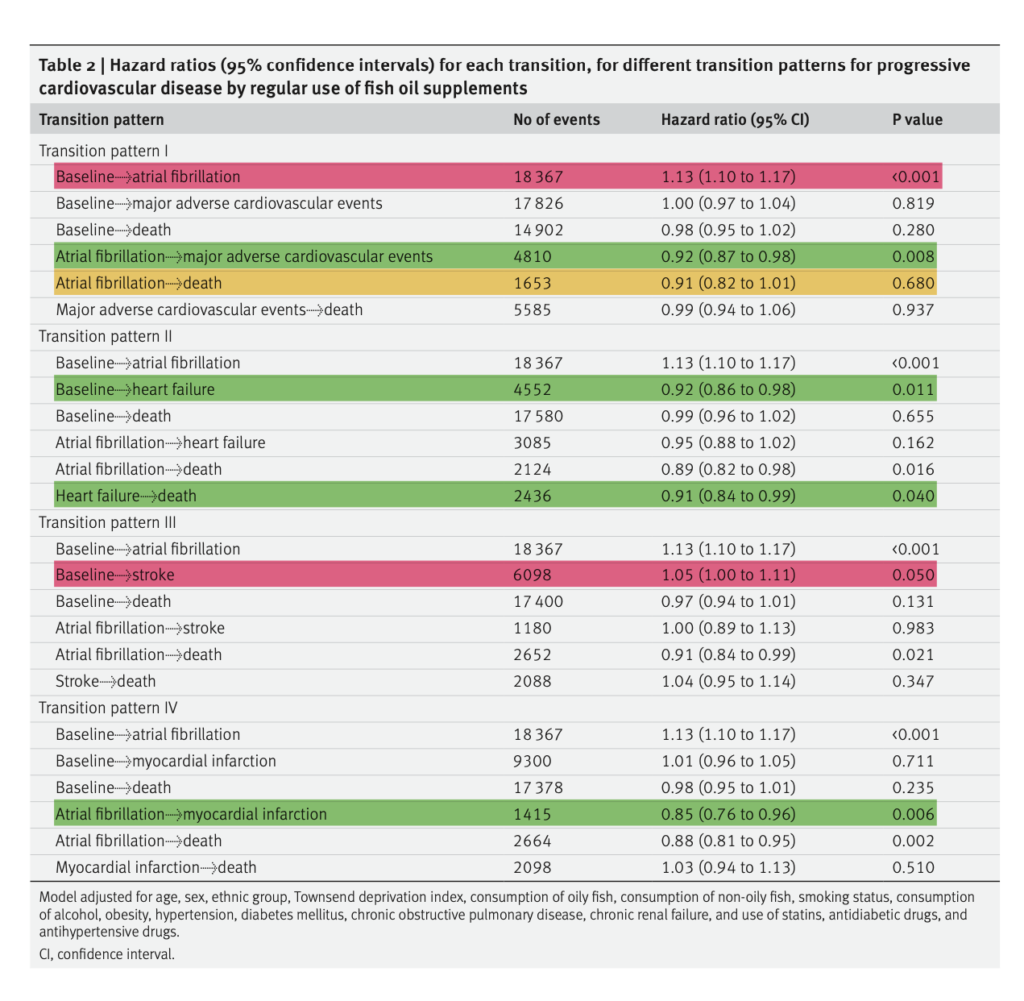Regular readers will be well aware of my small obsession with omega-3s. But that’s only because they’re so important for overall health and wellness. Omega-3s are essential fats that play critical roles in neurodevelopment, cognitive function, immune response, inflammation control, cardiovascular health, cancer prevention, and healthy aging…and that’s just the start!
Fish oil is a remarkable source of omega-3 fatty acids. Despite a wealth of evidence supporting their benefits, occasional studies or meta-analyses fail to find significant advantages. Rarely, a study might even suggest that fish oil could be detrimental to certain health aspects, raising unfounded alarms.
Recently, a large observational study suggested that the regular use of fish oil may worsen the progression of cardiovascular diseases in some people. Notably, none of these participants had cardiovascular diseases at the study’s start, based on self-reported and electronic health records, which may not perfectly capture all health details.
Participants were surveyed once to indicate whether they regularly used fish oil supplements, answering either “yes” or “no.” No information on the duration of use, type of supplement, formulation, or dosage was collected.
The participants were followed for about 12 years, during which diagnoses of atrial fibrillation (Afib), major adverse cardiovascular events (such as heart attack, stroke, or heart failure), and deaths were recorded.
The researchers aimed to understand not just which diseases the participants developed but how their health progressed. Did they remain healthy, develop a disease of interest, or die?
Participants were categorized into one of five transition states based on their health trajectory:
- Transition A: Healthy to Afib
- Transition B: Healthy to a major adverse cardiovascular event
- Transition C: Healthy to death
- Transition D: Afib to a major adverse cardiovascular event
- Transition E: Afib to death
- Transition F: Major adverse cardiovascular events to death

Now, let’s look at the results.
Fish oil use was associated with a 13% higher risk of developing Afib. However, it wasn’t linked to a greater risk of transitioning from healthy to a major adverse cardiovascular event or from healthy to death.
Among participants who developed Afib, fish oil use was linked to an 8% lower risk of transitioning to a major adverse cardiovascular event and a nearly significant 9% lower risk of death. There was no link between fish oil use and transitioning from a major adverse cardiovascular event to death.
Here’s a breakdown of the results for each individual major adverse cardiovascular event:
- From healthy to major cardiovascular events: Fish oil use was linked to an 8% lower risk of developing heart failure, a 5% higher risk of developing stroke, with no association found for heart attack.
- From Afib to major adverse cardiovascular events: Fish oil use was linked to a 15% lower risk of developing a heart attack but not associated with stroke or heart failure.
- Among fish oil users, there was a 9% lower risk of transitioning from heart failure to death, but no association for transitioning from stroke or heart attack to death.

The study suggests that fish oil supplementation may not be beneficial as a primary prevention strategy and might even be harmful. However, for secondary prevention among those with early-stage or late-stage cardiovascular disease, fish oil use might offer protection.
Should you stop using fish oil if you’re healthy?
Before jumping to conclusions, it’s essential to put these risk increases in perspective. Healthy fish oil users had a 13% higher risk of Afib and a 5% higher risk of stroke compared to non-users. This represents relative risk, which compares the risk in fish oil users to non-users, not absolute risk, which measures the actual difference in event rates between groups.
Without raw data on event rates in each group, we can’t determine the absolute risk for fish oil users and non-users in this study. Correspondence with Dr. Bill Harris indicates the absolute risks might be much lower than the relative risks. For example, the incidence of Afib in non-fish oil users was around 4.2%, while in fish oil users, it was 4.8%, representing an absolute risk increase of just 0.6%.
Additionally, the study found that although fish oil users had a higher risk of developing Afib, fish oil use protected them from progressing to more severe cardiovascular diseases.
Preventing stroke, heart failure, myocardial infarction, and death are arguably more important outcomes than atrial fibrillation, which is still undesirable. However, media headlines and even the study authors focused on the negative result for fish oil users rather than the beneficial outcomes observed.
Rather than delve into the study’s technical issues, it’s better to discuss the extensive literature supporting omega-3 supplements for heart health and preventing cardiovascular disease. Observational studies and randomized controlled trials generally agree that fish oil is cardioprotective. One relevant study from 2020, using nearly the same participant group as the UK Biobank study, found the opposite: regular fish oil use was linked to a 13% lower risk of all-cause mortality, a 16% lower risk of dying from cardiovascular disease, and a 7% lower risk of cardiovascular events.
The evidence for fish oil use strengthens when we look at what is arguably a much more robust measure than self-reported fish oil use — omega-3 fatty acid levels in the blood. One large meta-analysis of cohort studies (including a UK Biobank cohort) found that higher blood DHA levels were associated with a lower risk for all-cause mortality and a lower risk of dying from cardiovascular disease.
The evidence for fish oil strengthens when considering omega-3 fatty acid levels in the blood, a more robust measure than self-reported use. A large meta-analysis of cohort studies, including a UK Biobank cohort, found higher blood DHA levels linked to a lower risk of all-cause mortality and cardiovascular disease death.
Data from randomized controlled trials of omega-3 supplementation support its benefits, showing that doses of 2–4 grams per day protect against all-cause mortality, cardiovascular disease mortality, and stroke.
Importantly, aside from a slightly elevated risk of Afib, no other studies have found detrimental effects of fish oil supplementation on cardiovascular outcomes. Focusing solely on this observational study while ignoring the broader literature is misguided. Be cautious of sensational headlines and do not base your decision about fish oil supplementation on this single study.


Hey people!!!!!
Good mood and good luck to everyone!!!!!